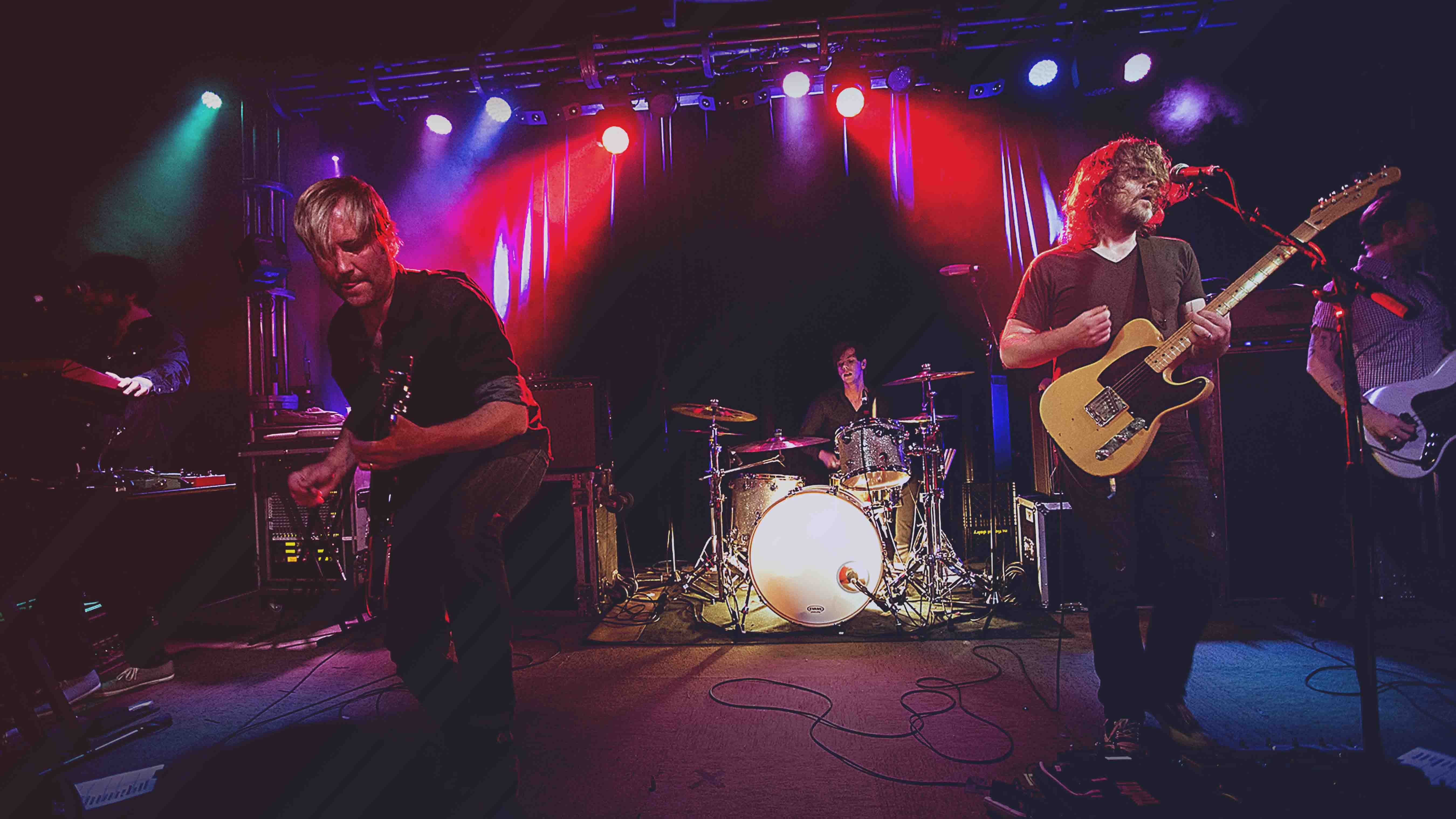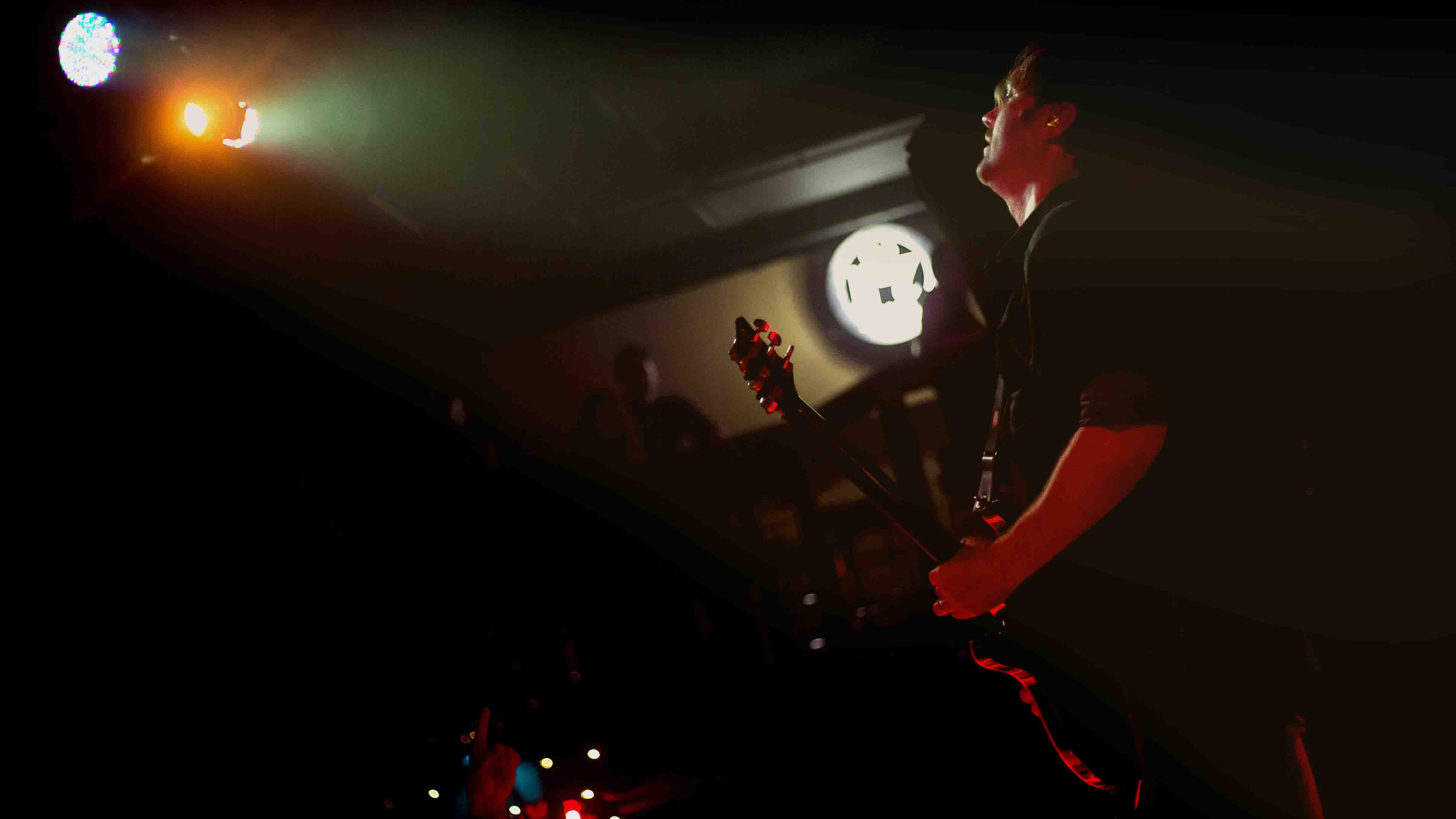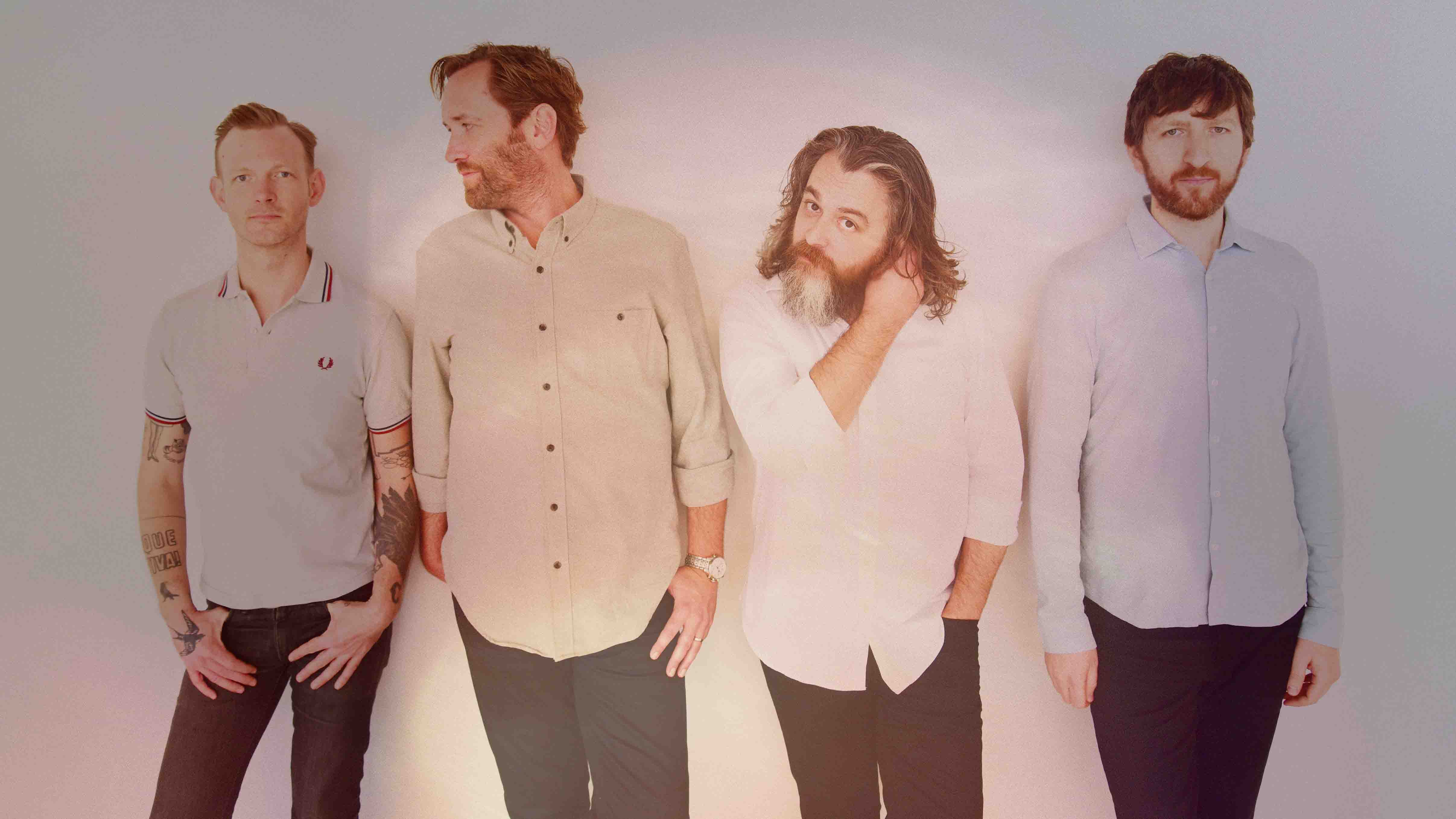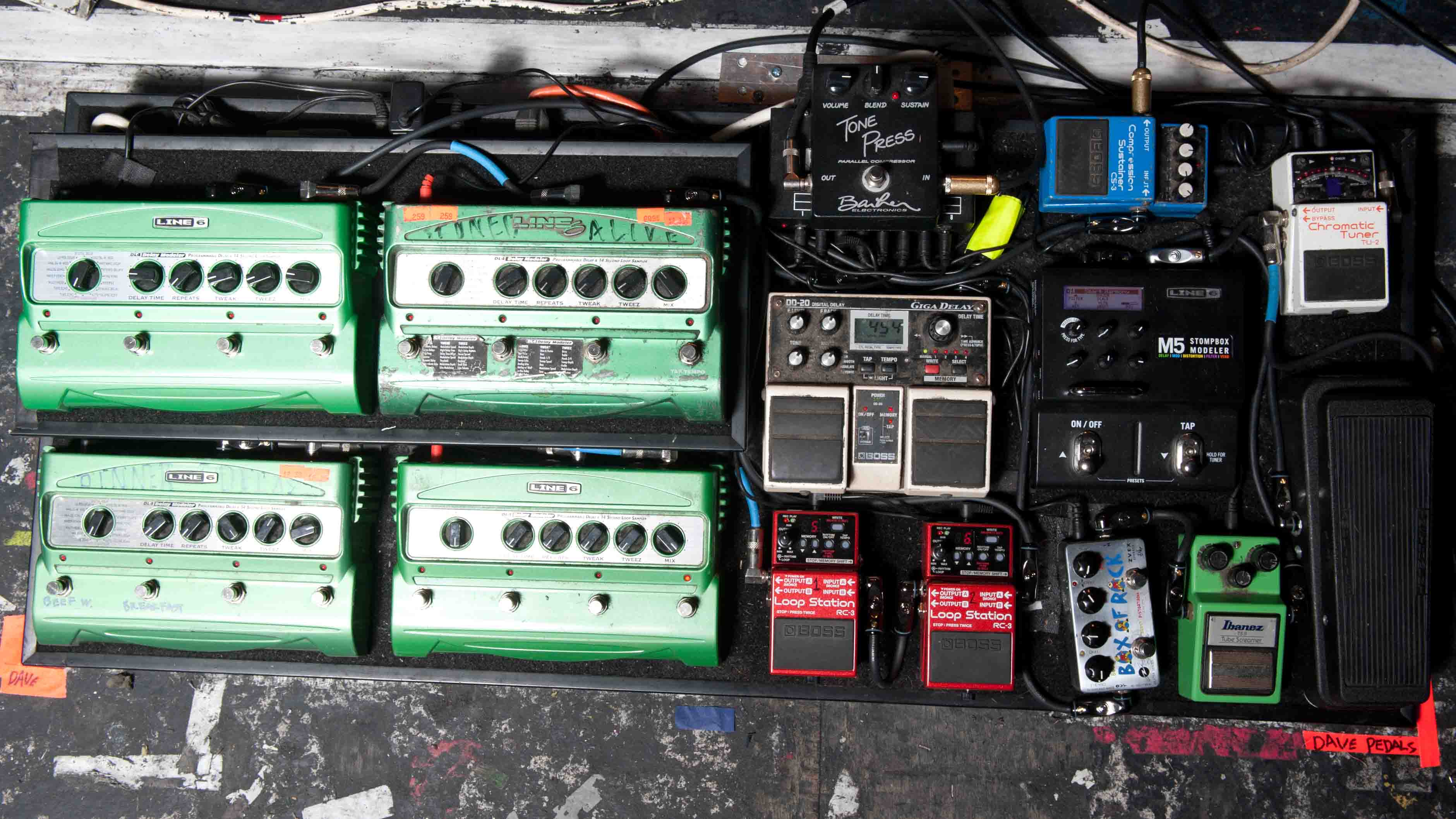Minus The Bear's Dave Knudson: my top 5 tips for guitarists
The pedal-keen loop-meister's finest guitar advice

VOIDS
In 2012, Minus The Bear released their fifth studio album, Infinity Overhead, to wide acclaim and their highest ever position in the Billboard charts - it felt like a big moment for one of indie-rock’s most interesting yet under-appreciated bands. However, in the five years since, the whole thing almost fell apart thanks to trouble from both inside and outside the band.
“After Infinity Overhead came out, our US record label that was supposed to give the record a big push kind of collapsed,” explains guitarist Dave Knudson.
“So it was a few hard years where we were a little dejected… Our original drummer, Erin [Tate], left the band and for a while there the band kinda seemed like it was in limbo. But once our new drummer [Kiefer Matthias] joined, there was a new sense of purpose, and of optimism and creativity.”
The result of that wellspring of creativity is a new album, VOIDS - which feels like the Seattle band recapturing the spirit of their first two records, while pushing things in a new direction.
“It was almost like a riff explosion!” Dave chuckles about the process of recording VOIDS.
“I think I’d had so much that I wanted to say with my guitar… and to then have this new drummer come in and for us to be on the same page as one another… that was one of the most creative moments that I can remember being a musician.
“It was just an awesome feeling - we all started hanging out together more; we liked each other again! It’s funny, sometimes you need to take a break.”
With the break well and truly over, we sat down with Dave to pick his brain about tapping, loops, and why you shouldn’t care about playing uncool guitars…
VOIDS is out on 3 March via Suicide Squeeze Records.

1. Messing with effects can change your life…
“The first time I started messing around with loops was in Botch, on the third song off [We Are The] Romans [Transitions From Persona To Object]… I think it was a DOD delay that had this infinite repeat setting on it.
“Then I got a [Line 6] DL4, and after [MTB’s first album, Highly Refined] Pirates came out, we were messing around in the rehearsal space - I think we were writing Fine + 2 Pts, the first song off Beer Commercials [2004 EP, They Make Beer Commercials Like This]. And rather than use the delay setting, I switched it over to the looper mode and wrote this thing and thought, ‘Wow, that’s pretty cool!’ And from there it just spiralled out of control! [laughs]
“It’s really fun, because it's become an instrument unto itself, and then on [2005 album] Menos El Oso, when we were writing that, I was seeing what I could do with the pedals and taking it to a level that I hadn’t really seen anyone do - though I’m sure other people were doing it - integrating live guitar with sampled sounds together to make the riff as opposed to just being a loop or a live guitar part.
“So melding those two together is kind of an interesting thing that happened. I was into the whole glitchy electronica thing back then, so I was just trying to make stuff sound like Four Tet or Caribou or any of that.”

2. …but don’t rely on effects to make a riff good
“While I love guitar and riffs, I don’t want all my riffs to sound like they’re made on guitar. But guitar is the only instrument I’m good at playing!
“There were a lot of pedals I used on this record - I used a Bit Commander from EarthQuaker quite a bit. That thing is insane. But the thing with that is, you can write the world’s lamest riff, and if you turn that on, it sounds rad! [laughs]
“So it’s one of those things that the sound it makes is the cool thing about the riff. And in that case, I like to make sure that the riff is good before I turn the effect on… because you gotta make sure the riff sounds good first. Otherwise it would just be bad Bit Commander riffs all over the record!”

3. Looping live is hard: you will mess up
“Loopers are fairly unforgiving! Ideally, I prefer to create the loops organically while the song is happening - playing this verse part and then loop it and make it something else by playing it backwards or double-time, or whatever. But honestly, it’s just trial and error - and sometimes I still screw it up on stage!
“It is such an unforgiving way to write something - because if you don’t play it perfectly, it’s still got to go through the full loop cycle before it stops, so any mistake you make just gets pounded into your head even more because it’s repeating itself!
Part of your instrument is about getting the loop right, not just playing your guitar
“Some people are perfectionists about stuff like that, but I kinda like it off the cuff - the song is going to be the song. It might be a tiny bit different from the last time you saw it, but I don’t think that’s a big deal; it adds a uniqueness to each performance.
“Obviously, I try to make it perfect every time, but sometimes that’s not realistic depending on the club, the sound, or [laughs] my playing that day! It’s more about rehearsing it and getting that skill, and knowing that part of your instrument is about getting the loop right, not just playing your guitar: practising the loop is practice unto itself.”

4. Don’t be afraid to play to your strengths
“Y’know, sometimes in a band you always want to move on and you don’t think about what got you there in the first place. So, going through this whole process, I guess I had a newfound appreciation for the older ‘tricks’ - for lack of a better term - and techniques that Minus The Bear had employed, and realising that just because it’s been done on that record doesn’t mean I can’t make a better riff using tapping… why don’t I try to outdo myself?!
“So there are a few songs on the new record with a lot of tapping in them, and obviously, that was one of the first things that Minus The Bear was really known for. And then there’s also quite a few loops and sampled bits, whether that’s What About The Boat? or the sample at the beginning of Last Kiss.
“I guess I was looking backwards in appreciation, but knowing that it was going to be a completely different record regardless, so don’t be scared to use a technique that maybe people might pin on you from 2005 or something, y’know?”

5. Use gear that works for you; don’t worry about being ‘cool’
“I used my PRS Custom 24 on 90 per cent of the new record - it was a combination of coil-taps, different pickups, different amps… whatever. I feel at home with PRS guitars - I love the way the necks feel, they’re really easy to tap on so the playability is awesome… they sound great.
“I keep telling myself that I need to go and find other guitars that I like to play in Minus The Bear, but I always come back to the PRS. It just feels like home, and it feels like the right instrument that’s suited for what I want to do, guitar-wise.
“Yeah, they’re not like Fenders or whatever but… nah, I don’t care! I know it’s not ‘cool’ like playing a Les Paul that’s slung down low off your hip, or it’s not a Tele, or whatever… but I don’t really care about people’s perceptions. I just know that it’s an instrument that helps me to create what I want to in my head.
I’ve found that the PRS can’t be beat in terms of playability and reliability. I sound like a stupid spokesperson coming out with all this stuff, but it’s totally true!
“If I want to play a Bruce Springsteen-style thing, I’ll pick up my Tele… certain guitars just seem to suit the style more, and for me, I’ve found that the PRS can’t be beat in terms of playability and reliability. I sound like a stupid spokesperson coming out with all this stuff, but it’s totally true! If you like something, you like something!
“I am a bit of a contrarian guitarist, sure. Normally, it would be a Les Paul… and not having this gaudy huge pedalboard with loads of DL4s on it! But those are the tools I need to make the music, and whether you think it’s cool or not that I play a PRS or whatever… eh…
“There might be some people that are like, ‘I can’t believe he’s playing that guitar.’ But I guess for me it’s all about what works, and I’m not going to be a sucker for ‘It’s got to be a vintage ’63’ or whatever - give me a guitar that works for me and that’s all I need.”
